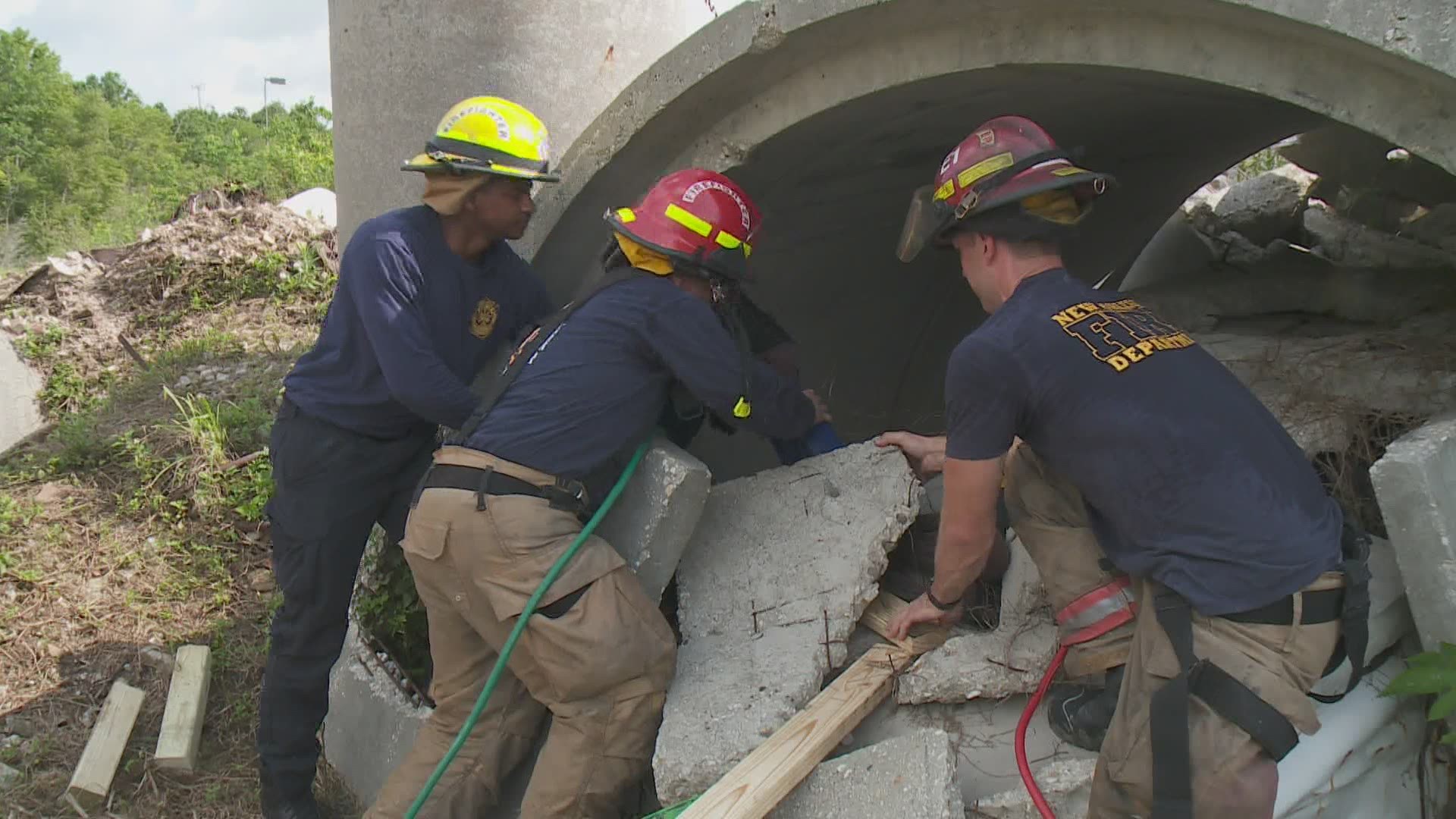NEW ORLEANS — As the desperate search and rescue mission continues at the site of the Florida condo collapse, there are teams in Louisiana training for similar disasters.
On Friday, the Louisiana State Urban Search and Rescue task force held exercises dealing with collapsed buildings. It included K-9 teams, which can be the first ones to find signs of life or death.
“Their sense of smell is so acute that they can find these things better than any human machine,” said Trey Todd, president of Louisiana Search and Rescue.
At the training exercise in New Orleans East, Trey Todd and his search dog tried to locate a victim trapped under rubble. Within two minutes of getting on the scene, the dog sent out a signal. A firefighter playing the role of a surviving victim was found.
Todd was in similar training when the Hard Rock construction site partially collapsed in 2019, killing three workers.
“We were training for that, so training is the key to success,” said Todd.
The Hard Rock and the condo collapse in Florida are examples of the unpredictable nature of emergencies. With a massive debris field, and more than 100 people unaccounted for, multiple factors are working against firefighters on scene.
“No matter how many people you throw at this thing, the resources are going to be limited. The structures have to be stabilized; they have to be made reasonably safe for the rescuers to enter,” said Ruel Douvillier.
Ruel Douvillier is the coordinator for Louisiana Search and Rescue. The task force is a mix of selected firefighters throughout the state who must be ready to propel themselves into the aftermath of hurricanes, earthquakes and everything in between.
This week’s training exercises were scheduled well before the Florida collapse. Douvillier said what’s happening in Florida is a worst-case scenario.
“These victims are going to be completely or partially covered. They’re going to be in out-of-the-way places. They’re going to be difficult to find. Once they find them, they have to extricate them and when you’re talking about tons of concrete, that’s going to be quite the operation,” said Douvillier.
We usually hear in these situations that it’s a race against time. That may be true, but search and rescue teams often have to work slowly and methodically for their own safety.
What is usually sees in training and in real life are the physical aspects of searches and rescues. Douvillier said what’s not always visible is the psychological impact of these operations, especially when they involve recovering victims.
“Those people are going to have to come home too. So, they’re going to have to dig those people out. That is going to be brutal on them emotionally as well as the physical labor.”
That kind of toll is what many of these firefighters are prepared to take on…it’s part of the reason why we often call them heroes.

